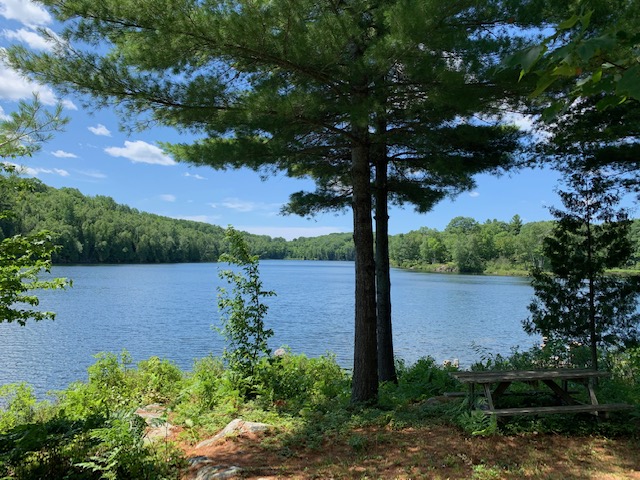A “Survivor Workshop – Mara” card dangles from my neck. I’ve had 72 hours to recover, and I’m back at the Sheraton for the third time this week. (Ha ha. Maybe this year.)
Over sticky Danishes, a couple tells me about their horrible car crash 12 years ago. The woman’s still so raw that she starts crying when she talks about her daily life. I sit next to a man that I know from brain injury support groups. On my right is a 25-year-old woman who’s so tired she keeps nodding off.
This is my tribe.
The survivor workshop marks the first time all four levels of brain injury support – the International Association of Brain Injury, Brain Injury Canada, the Ontario Brain Injury Association and the Brain Injury Society of Toronto – are hosting an event together. I can’t believe it’s taken so long. It’s f**king 2019, as we like to say.

*
The first session is all about mindfulness – a huge part of my recovery. The moderator reminds us that mindfulness is being in the moment and acknowledging where we are now so we can set goals.
“To accept where I am, I’ll get there sooner,” says the workshop leader in a soothing voice. We’re training our brains. Neuroplasticity.
Give the brain respect, she says. “Learn to live with more compassion for yourself.”
We’re reminded of the seven foundational attitudes of mindfulness: curiosity, non-judgment, acceptance, trust, patience, non-striving and letting go.
A workshop participant – a survivor, like me – shouts out, “I’m in constant conflict … I don’t know who I am.”
“I look at the underachiever that I’ve become, compared to the overachiever I used to be,” says another.
A woman behind me speaks up. “I feel like a part of me has died.”
“My dead me,” shouts someone else.
This is my tribe.
*
We discuss the wandering mind, and how most conflicts come from shudda, wudda, cudda. How turning toward pain is hard when one is scared of being retraumatized.
Dip a toe in, says the workshop leader. You don’t have to retraumatize. It’s the same with thoughts and emotions.
We move on to how our lives have changed in positive ways.
“I love to swim so much. I don’t know why I didn’t do it before my brain injury!” says someone.
“I’m building a library of things that ground me: medication, therapy,” says another.
We’re shifting from autopilot to engagement. “Stories of each other are the best research,” someone says.
Have I mentioned that this is the first time that I’ve sat in a room with 40 TBI (traumatic brain injury) survivors? Some are doing better, some worse. We march to a similar rhythm.
“With flight or fight, healing will not occur,” cautions the workshop leader. When you’re on autopilot and suffering from a brain injury – that’s the opposite of mindfulness, of living well, of living with a brain injury.
“Practise, practise, practise.”